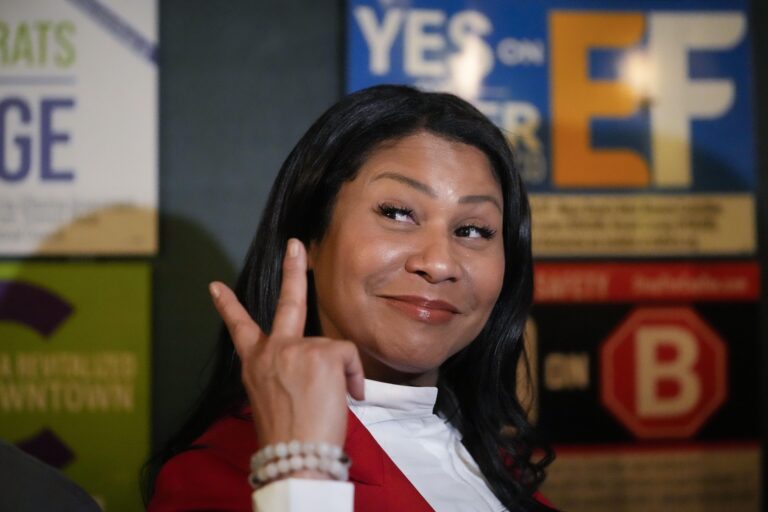San Francisco’s Democratic Divide: Navigating Crime Policy Amid Rising Public Safety Concerns
Internal Democratic Disputes Over Crime Strategy in San Francisco
In 2022, San Francisco’s Democratic Party, which holds significant sway over the city’s political direction, experienced escalating tensions regarding crime and public safety policies. This discord exposed deep ideological differences between progressive members advocating for systemic reforms and moderates favoring stronger law enforcement measures. Progressives emphasize addressing underlying social issues such as homelessness, mental health, and economic inequality through community programs and alternatives to incarceration. They argue that punitive approaches have historically failed to reduce crime and disproportionately affect vulnerable populations.
On the other hand, moderate Democrats stress the necessity of bolstering police presence, enforcing stricter penalties for repeat offenders, and allocating more resources to law enforcement agencies to combat the surge in property crimes and violent offenses. Both factions agree on the importance of enhancing public safety but diverge sharply on the methods to achieve it.
- Progressive Focus: Rehabilitation and social support initiatives
- Moderate Perspective: Strengthened policing and tougher sentencing
- Common Ground: Commitment to improving safety, differing on tactics
| Policy Area | Progressive Viewpoint | Moderate Viewpoint |
|---|---|---|
| Police Budget | Reduce funding; redirect to social services | Increase funding to enhance patrols and response |
| Sentencing Guidelines | Lower mandatory minimums and focus on alternatives | Maintain or raise penalties for repeat offenders |
| Community Programs | Expand mental health crisis intervention teams | Strengthen neighborhood watch and community policing |
How Rising Crime Influences Public Confidence and Political Dynamics
The uptick in crime has deeply affected community trust in San Francisco, fracturing the unity once fostered by shared progressive values. Neighborhood forums and public discussions reveal growing skepticism toward both law enforcement and city officials, with many residents expressing fears that reform-focused policies have compromised safety. This erosion of trust has led to heightened tensions between citizens and police, complicating efforts to foster cooperative relationships.
Politically, the Democratic Party’s dominance is challenged by internal divisions over crime policy. Some members advocate for intensified policing and stricter laws, while others remain committed to social program investments and decarceration strategies. These conflicting priorities have disrupted traditional alliances, as leaders attempt to balance the demands of diverse voter bases amid mounting public pressure for effective crime reduction.
- Community Fractures: Growing distrust between residents and law enforcement
- Political Schisms: Divergent Democratic stances on crime and safety
- Policy Contentions: Debate between reformist and enforcement approaches
- Public Demand: Increased calls for tangible safety improvements
| Group | Crime Strategy | Primary Supporters |
|---|---|---|
| Progressive Reformers | Social interventions and prevention | Activists, younger electorate |
| Law-and-Order Proponents | Increased policing and tougher laws | Business communities, neighborhood groups |
| Centrist Democrats | Combination of enforcement and reform | Broad voter base |
Striking a Balance: Reform Initiatives Versus Public Safety Demands
San Francisco’s leaders face the complex task of reconciling progressive reform goals with the urgent need to maintain public safety. Advocates for change highlight the importance of tackling systemic issues such as homelessness and mental health challenges, promoting rehabilitation over incarceration. Yet, rising incidents of theft, assaults, and public disturbances have fueled public anxiety, prompting calls for more immediate and visible law enforcement action.
City officials and community stakeholders are challenged to:
- Advance justice reforms without weakening police effectiveness
- Distribute funding equitably between social services and policing
- Communicate policies effectively to sustain public confidence
| Key Challenge | Divergent Views |
|---|---|
| Policing | Reform-focused vs. enforcement-focused |
| Public Safety | Priority amid reform debates |
| Community Trust | Preservation vs. decline |
Strategic Policy Proposals to Bridge Divides and Enhance Safety
Experts and community leaders urge San Francisco’s policymakers to move beyond partisan gridlock by adopting integrated, data-driven strategies that combine social support with effective law enforcement. Emphasizing collaboration between city agencies and neighborhood organizations is seen as vital to addressing the root causes of crime and restoring public trust.
Recommended policy actions include:
- Scaling up community violence interruption programs proven to reduce shootings and assaults
- Enhancing police transparency through mandatory body camera usage and independent oversight
- Expanding affordable housing initiatives to alleviate homelessness-related crime
- Deploying mental health crisis response teams to divert nonviolent incidents from the criminal justice system
- Utilizing analytics to optimize resource allocation and measure program effectiveness
| Policy Domain | Proposed Initiative | Anticipated Outcome |
|---|---|---|
| Housing | Boost affordable housing stock by 20% | Decrease crime linked to homelessness |
| Mental Health | Expand specialized crisis intervention teams | Reduce incidents involving mental health crises |
| Police Accountability | Mandate body cameras and strengthen oversight | Improve transparency and community trust |
Looking Ahead: Lessons from San Francisco’s Political and Social Challenges
As San Francisco confronts escalating crime and internal Democratic Party divisions, the city’s experience highlights the broader national struggle to balance progressive reforms with public safety imperatives. The outcome of these debates will not only shape the city’s future governance but may also offer valuable insights for other urban centers wrestling with similar issues. Achieving a sustainable path forward requires bridging ideological divides, fostering community engagement, and implementing pragmatic policies that protect residents while addressing systemic inequities.




